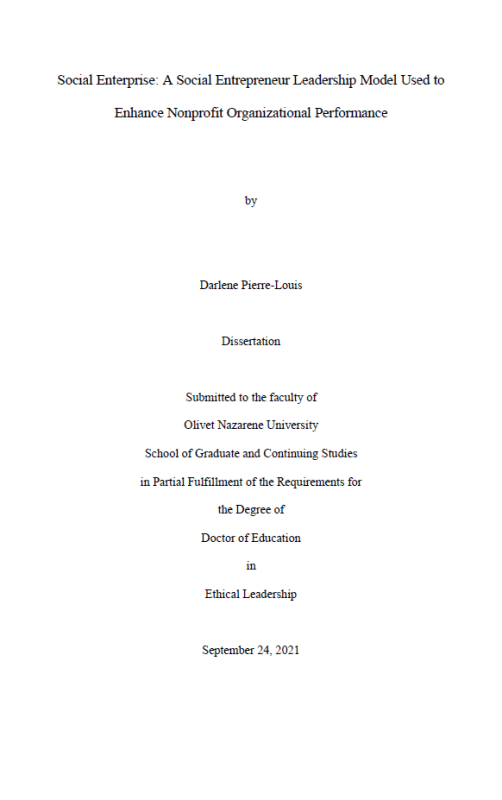- Resource Types
- Resource Languages
- Institutional Repository
 Visit the home page
Visit the home page
About Site Language
WHDL is viewable in multiple languages. Use the pull-down menu to select a language to view the site.
I changed my language, but I’m still seeing resources in the other languages?
If a resource or text has not been translated into your selected language, it will appear in the initially added language. We are always looking for help translating these resources. If you can help, contact us!
WHDL - 00018004


Nonprofit leaders are competing for limited resources; Boards of Directors who achieve their financial goals and social missions are standing in the winners’ circle. However, small-to-midsize nonprofits struggle to profit from the social enterprise activity which promises to be a solution for dwindling budgets and program sustainability. Even more important, small-to-midsize nonprofits with annual revenue between $25,000 and $250,000, and that do not have a paid staff dedicated to earned income opportunities must retool to reap financial rewards. The study examined the impact that entrepreneurial behaviors had on operating successful nonprofit social enterprises to attract financial resources. The objective of the study was to determine whether non-entrepreneurial leaders (who do not have business experience), who operate small-to-midsized nonprofits can successfully incorporate social enterprise activities into their nonprofit agencies to enhance organizational performance. The review of the literature revealed that there is some evidence that nonprofit entrepreneurial leaders may demonstrate greater resiliency in adverse economic conditions over traditional nonprofit leaders. A comparative exploratory case study methodology based on qualitative research was used in this dissertation. Additionally, an inclusion of quantitative methodology served to supplement and complement the core qualitative study. The findings from the study showed that there were no significant differences between Boards of Directors' entrepreneurial behaviors that will enhance the likelihood of operating a successful social enterprise into a small-to-midsize nonprofit agency to attract financial resources. However, the social enterprise nonprofit showed higher means' scores overall on the Entrepreneurial Orientation and Board Behavioral Orientation Scales compared to the ordinary nonprofit.
15 Resources
Papers and theses produced by Olivet faculty and students.